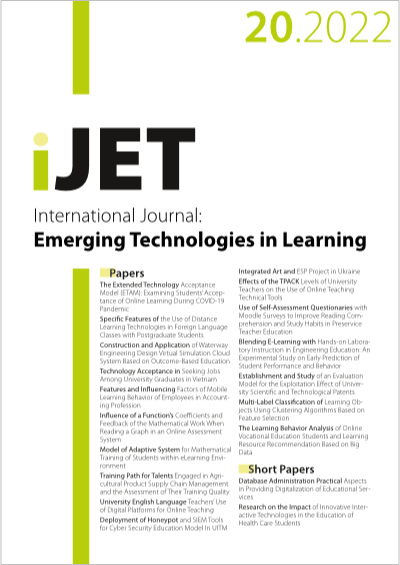Influence of a Function’s Coefficients and Feedback of the Mathematical Work When Reading a Graph in an Online Assessment System
DOI:
https://doi.org/10.3991/ijet.v17i20.32641Keywords:
mathematic education, Digital technology, distance education and online learning, task design, higher education, mathematical activityAbstract
This paper shows the results of an experiment applied to 170 students from two Chilean universities who solve a task about reading a graph of an affine function in an online assessment environment where the parameters (coefficients of the graphed affine function) are randomly defined from an ad-hoc algorithm, with automatic correction and automatic feedback. We distinguish two versions: one of them with integer coefficients and the other one with decimal coefficients in the affine function. We observed that the nature of the coefficients impacts the mathematical work used by the students, where we again focus on two of them: by direct estimation from the graph or by calculating the equation of the line. On the other hand, feedback oriented towards the "estimation" strategy influences the mathematical work used by the students, even though a non-negligible group persists in the "calculating" strategy, which is partly explained by the perception of each of the strategies.
Downloads
Published
How to Cite
Issue
Section
License
Copyright (c) 2022 Jorge Gaona, Dr. Rodrigo Hernández, Felipe Guevara, Víctor Bravo

This work is licensed under a Creative Commons Attribution 4.0 International License.


